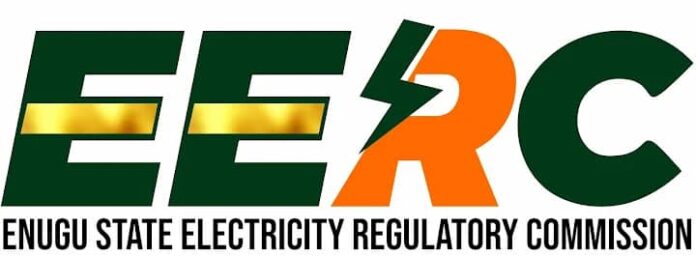Following the Enugu State Electricity Regulatory Commission (EERC) recent electricity tariff downgrade, the Forum of Commissioners for Power and Energy in
Nigeria (FOCPEN), has acknowledged the decision, stating that it actions fully aligned with the regulatory provisions.
FOCPEN made it acknowledgement in a statement issued on Wednesday to clarify recent developments in the
Enugu State electricity market and to reassure investors and stakeholders about the direction of electricity sector reforms across Nigerian States.
The statement was jointly signed by the Chairman and Secretary of FOCPEN, Prince Eka Williams (River State) and Barr. Omale Omale (Benue State).
The Enugu State Electricity Regulatory Commission had in its earlier announcement issued a new tariff order to MainPower Electricity Distribution Limited, reviewing electricity cost for Band A customers from N209 per kilowatt-hour to N160/kWh, effective August 1, 2025.
On the contrary, the Association of Power Generation Companies (APGC) lamented that, “this tariff issued by EERC has set a precedent for all other States. From their tariff order, only N45 naira is captured for generation cost out of N112. This portends bigger issue in the decentralisation of power or electricity to the states.”
But the statement by FOCPEN revealed that EERC’s tariff order followed a thorough examination of the capital expenditure (Capex) and operational expenditure (OpEx) assumptions of MainPower Electricity Distribution Company, using data and information provided by the distribution company itself.
“FOCPEN wishes to acknowledge and clarify the recent decision by the Enugu State Electricity Regulatory Commission (EERC) to review and adjust electricity tariffs within its jurisdiction. It is crucial to understand that Enugu State’s actions are fully aligned with the provisions of the Constitution of the Federal Republic of Nigeria, the Electricity Act 2023, and Enugu State electricity laws and regulations. These legal frameworks empower States to regulate their intra-state electricity markets, including determine and implement electricity tariffs within their jurisdiction, which are fair to electricity consumers and sufficient to allow licensees recover their operating expenses and investments.
“FOCPEN wishes to also clarify that the EERC’s tariff order followed a comprehensive and meticulous review process that involved a thorough examination of the capital expenditure (Capex) and operational expenditure (OpEx) assumptions of MainPower Electricity Distribution Company, the State electricity distribution company.
“This rigorous assessment was conducted using data and information provided by the distribution company itself. EERC also carried out a rigorous assessment of MainPower’s existing customer tariff classification and regulatory asset base. One outcome of its rigorous assessment revealed that EERC had lifeline customers paying N4.00/kwh on Band A Feeders, including a former two time Military Administrator and former Chief of Naval Staff. The EERC, acting within the ambit of its regulatory provisions, has set tariffs appropriately based on these findings, aiming for a cost-reflective and fair market for consumers and operators alike.
“FOCPEN emphasizes that while Enugu State has, based on its specific market conditions and regulatory findings, adjusted its Band A tariffs downwards, this does not dictate a uniform approach for other States. For instance, several SERCs (e.g Ekiti State, Ondo State, etc), have issued tariff orders maintaining the present MYTO tariffs.
“Without any equivocation, each State Electricity Regulator is uniquely positioned within to determine and implement appropriate electricity tariffs that are fair to customer and at same time, catalyze investments within their electricity markets, depending on their peculiar electricity market dynamics, licensee cost structures, consumer needs and regulatory assessments,” it stated.
The power commissioners, however, assured investors in the Nigerian Electricity Supply Industry (NESI) that states are not seeking to arbitrary downgrade tariffs, nor depend on unsustainable electricity subsidies by the Federal Government.
“On the contrary, States are resolute in their call for the removal of untargeted and opaque federal subsidies, advocating instead for the establishment of truly cost-reflective sub-national and wholesale electricity markets. States, including Enugu State, are collectively committed towards fostering financially viable and sustainable electricity sectors where electricity tariffs accurately reflect the cost of service delivery, thereby encouraging investment and efficiency,” FOCPEN clarified.
The Commissioners further clarified that state electricity regulators, including EERC, regulate the intra-state distribution segment not the wholesale electricity market, adding that the tariffs for wholesale generation and transmission services, which fall under the purview of the Nigerian Electricity Regulatory Commission (NERC), remain secure and unaffected by EERC actions.
FOCPEN therefore, described the agitation among GenCos that Enugu State’s tariff review will negatively impact their revenue streams as unfounded.
Meanwhile, FOCPEN clarified that the Enugu’s regulatory framework does not extend to the wholesale market where GenCos operate, stating that the GenCos tariff, as approved by NERC, was duly factored into the EERC’s calculations.
The Forum, while reiterating it’s open invitation to investors for partnership, reaffirmed their commitment to continually ensuring that State electricity markets remain viable for investment, stable for operations, and ultimately capable of delivering reliable and affordable power to all citizens.

